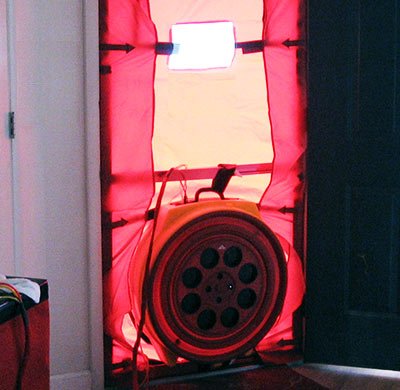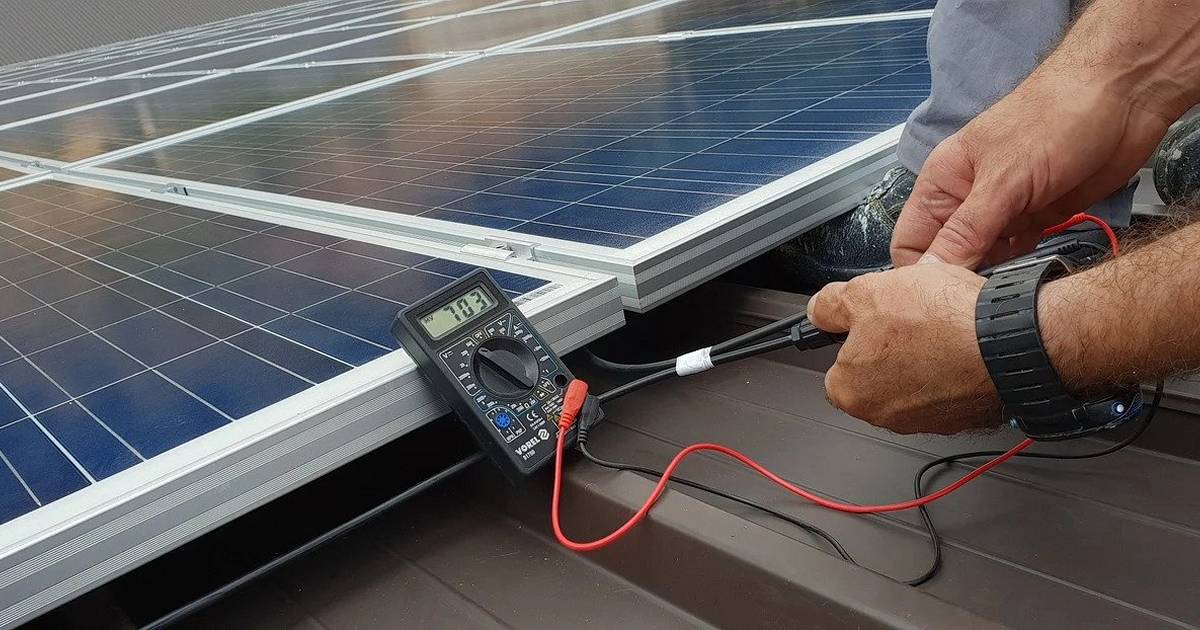Top 10 reasons why energy testing is a must for homeowners
Top 10 reasons why energy testing is a must for homeowners
Blog Article
Exactly How Power Testing Can Lead to More Lasting Living Solutions
Power testing is a crucial device for promoting sustainable living. It reveals inadequacies in power use within homes. Methods such as power audits and thermal imaging provide useful understandings. House owners can identify areas requiring improvement, from insulation to home appliances. Attending to these inefficiencies can lead to considerable energy financial savings. Yet, lots of continue to be uninformed of the complete potential of these methods. What actions can people require to boost their homes and add to an extra lasting future?
Comprehending Energy Screening and Its Value

Common Methods of Power Screening
There are numerous typical methods of power testing that house owners can use to evaluate their power effectiveness (energy testing north carolina). One extensively made use of technique is the blower door examination, which determines the air leakage in a home. By pressurizing the structure, it recognizes breezy areas that might need securing. Another approach is thermal imaging, where infrared cameras detect temperature level variations in ceilings, wall surfaces, and home windows, highlighting insulation issues.Energy audits are also preferred, including a thorough assessment of a home's power usage, often performed by a specialist. These audits may include examining home heating and cooling systems, appliances, and total energy usage patterns. Additionally, wise energy meters can give real-time data on power use, assisting homeowners comprehend their usage practices. With each other, these approaches offer important understandings, enabling homeowners to make enlightened decisions about enhancing their power performance and promoting sustainable living practices
Identifying Power Inefficiencies in your house
Determining power inadequacies in a home is essential for home owners aiming to minimize energy consumption and reduced utility expenses. Common locations to examine include insulation, windows, and devices. Poor insulation can result in considerable heat loss in winter months and undesirable warmth gain in summertime, making heating & cooling systems function harder. Breezy home windows contribute similarly, allowing conditioned air to run away and boosting power demand.Additionally, out-of-date appliances often consume more power than their modern equivalents, additionally worsening inadequacy. Property owners should also think about the lights system, as incandescent bulbs use even more power contrasted to LED options.Regular maintenance of a/c systems is crucial, as overlook can lead to reduced performance. By systematically assessing these facets of a home, homeowners can identify locations needing improvement. Resolving these ineffectiveness not only boosts convenience however likewise adds to a more sustainable way of life by lessening power waste.
The Duty of Energy Audits in Sustainability
Energy audits play a vital function in advertising sustainability by offering property owners with an extensive evaluation of their power usage. These examinations identify locations where power is lost, permitting individuals to understand their usage patterns and make notified decisions for improvement. By disclosing inadequacies in home heating, cooling, insulation, and home appliances, energy audits function as an important tool for decreasing general energy demand.Furthermore, they promote the implementation of energy-saving steps, such as upgrading insulation or installing energy-efficient lights, which can considerably lower energy expenses and decrease carbon impacts. The understandings acquired from an energy audit equip home owners to prioritize sustainability in their living environments. As even more homes engage in this procedure, the collective impact adds to broader environmental goals, promoting a culture of energy awareness and obligation. Ultimately, power audits are foundational to progressing lasting living solutions, profiting both private property owners and the setting at big.
Ingenious Technologies for Power Effectiveness
As property owners progressively look for to improve their power efficiency, cutting-edge modern technologies are emerging to sustain these undertakings. Smart home systems, geared up with sensors and automation, enable homeowners to regulate and keep track of power usage in real-time. These systems can readjust air conditioning, lighting, and heating based on occupancy, thereby reducing waste.In enhancement, advancements in energy-efficient home appliances have actually made substantial strides. Gadgets such as ENERGY STAR-rated fridges and cleaning machines take in much less power while giving perfect efficiency. The combination of sustainable energy sources, like solar panels and wind turbines, makes it possible for property owners to produce their very own power, reducing dependence on nonrenewable resources.Building materials have additionally progressed, with alternatives like shielded energy-efficient home windows and concrete kinds adding to minimized energy loss. With each other, these ingenious modern technologies not just boost power efficiency but additionally promote an even more sustainable living environment, encouraging homeowners to make impactful choices in their energy intake methods.
Long-Term Advantages of Sustainable Living
While many might see sustainable living as a pattern, its long-term benefits expand much beyond plain way of living selections. Welcoming sustainable techniques leads to significant decreases in carbon impacts, contributing to a much healthier earth. By minimizing resource consumption and prioritizing renewable resource, individuals and communities can experience reduced energy prices. This monetary relief can boost economic stability in time, permitting reinvestment in other necessary areas.Furthermore, lasting living promotes stronger neighborhood connections as individuals team up on regional initiatives, promoting social cohesion. Health and wellness advantages likewise arise, as decreased air pollution and increased green areas boost air quality and general well-being. Furthermore, future generations will certainly acquire a much more lasting atmosphere, making sure the schedule of all-natural resources and biodiversity. Eventually, the lasting advantages of sustainable living encompass environmental, financial, and social dimensions, providing a compelling instance for people to embrace and keep these techniques for the greater good.
Actions to Implement Energy-Saving Solutions
Applying energy-saving solutions begins with a detailed evaluation of power intake patterns to recognize areas for enhancement. Once these patterns are understood, people can identify energy-efficient upgrades that line up with their demands. Continual monitoring and changes to power usage assurance that these services continue to be efficient with time.
Analyze Energy Intake Patterns

Reviewing energy consumption patterns is an important action toward recognizing efficient energy-saving options. By systematically tracking usage throughout various times and companies, people and devices can pinpoint areas of too much consumption. This analysis can reveal peak use durations, enabling a much better understanding of when energy demands are highest. Additionally, taking a look at patterns permits for comparisons between similar home appliances, highlighting those that operate less effectively. Information collection approaches, such as clever meters and power audits, give valuable insights right into general power usage. Recognizing patterns over time can help in recognizing seasonal variants and changes in usage routines. This fundamental expertise is essential for creating targeted techniques that promote sustainable living and reduce total power expenditure.
Identify Energy-Efficient Upgrades
To effectively implement energy-saving solutions, recognizing energy-efficient upgrades is vital for both companies and homeowners. This process begins with an extensive examination of existing systems, consisting of HVAC devices, insulation, and home appliances. Upgrades may include setting up power STAR-rated home appliances, enhancing insulation, and making use of energy-efficient home windows. Furthermore, implementing clever thermostats can optimize home heating and cooling down routines, decreasing power usage. Shifting to LED lights is one more reliable measure, as it takes in substantially less power than conventional bulbs. Moreover, exploring sustainable energy alternatives, such as solar panels, can supply lasting financial savings. Inevitably, prioritizing these upgrades not just adds to reduced power prices yet also promotes a dedication to sustainability, profiting both the setting and future generations.
Monitor and Adjust Usage
Tracking and readjusting energy usage is essential for making the most of the benefits of energy-saving options. Consistently evaluating energy usage patterns allows services and individuals to identify locations for why not try this out renovation. By utilizing clever meters and energy monitoring systems, customers can track real-time usage and detect any anomalies that might indicate inefficiencies.Adjusting habits, such as transforming off lights and disconnecting unused tools, further enhances power financial savings. Additionally, organizing home appliances to operate throughout off-peak hours can substantially reduce costs.Conducting regular energy audits warranties that implemented options continue to be effective gradually. By proactively involving in monitoring and adjusting practices, people can enhance their power effectiveness, contribute to sustainability efforts, and inevitably lower their ecological footprint.
Frequently Asked Inquiries
Exactly how Much Does a Power Audit Typically Price?

Can Power Screening Help In Reducing Energy Bills?
Energy testing can considerably minimize utility costs by recognizing ineffectiveness in a home's power use. By addressing these concerns, homeowners commonly experience look at this website lower usage and prices, resulting in more cost-effective power monitoring and boosted economic cost savings.
What Credentials Should an Energy Auditor Have?
A power auditor need to possess relevant certifications, such as RESNET or BPI, along with experience in building scientific researches. energy testing taylors sc. Strong logical skills and understanding of energy performance practices are necessary for conducting exact analyses and giving efficient suggestions
Exist Government Motivations for Power Performance Upgrades?
Federal government incentives for power effectiveness upgrades typically exist, including tax obligation discounts, credit reports, and gives. These programs aim to motivate organizations and property owners to purchase energy-saving modern technologies, ultimately advertising environmental sustainability and decreasing total energy usage.
How Often Should I Conduct Energy Screening in My Home?
Power testing need to ideally be performed annually to identify ineffectiveness. Nevertheless, house owners might think about much more frequent analyses after substantial improvements, changes in power expenses, or if unusual drafts or temperature variations are noticed within the home. Energy testing allows the evaluation of how well a home utilizes energy, identifying locations where waste happens. Identifying energy inadequacies in a home is important for homeowners aiming to lower power intake and lower energy expenses. Power audits play a necessary function in promoting sustainability by supplying property owners with a comprehensive evaluation of their energy usage. By revealing inadequacies in heating, air conditioning, insulation, and appliances, power audits offer as a vital device for decreasing general energy demand.Furthermore, they promote the application of energy-saving steps, such as updating insulation or setting up energy-efficient lights, which can significantly reduce utility costs and minimize carbon footprints. Power testing can substantially reduce energy costs by recognizing web ineffectiveness in a home's energy usage.
Report this page